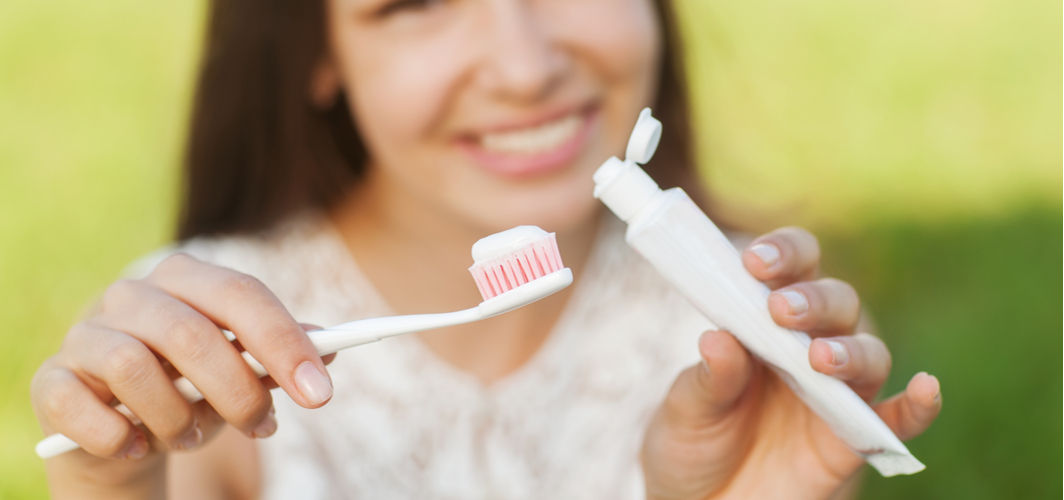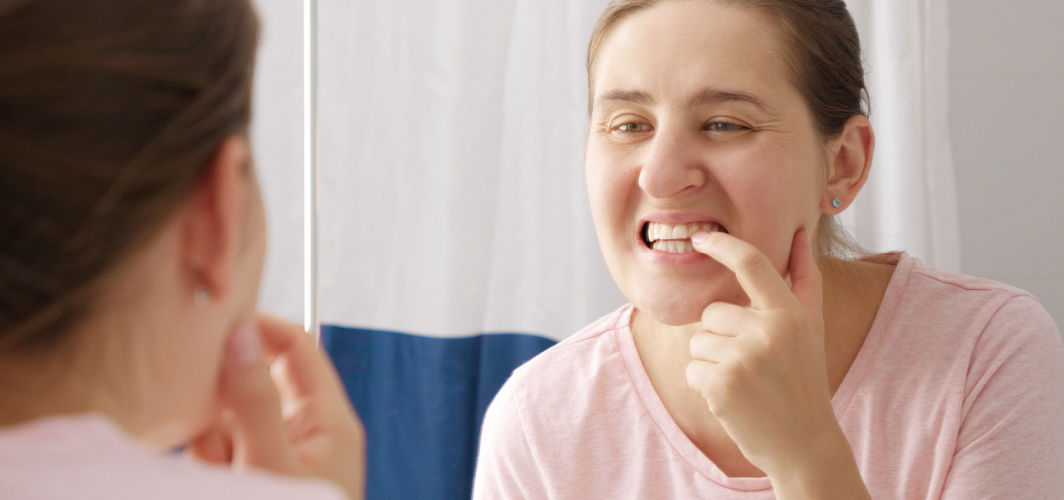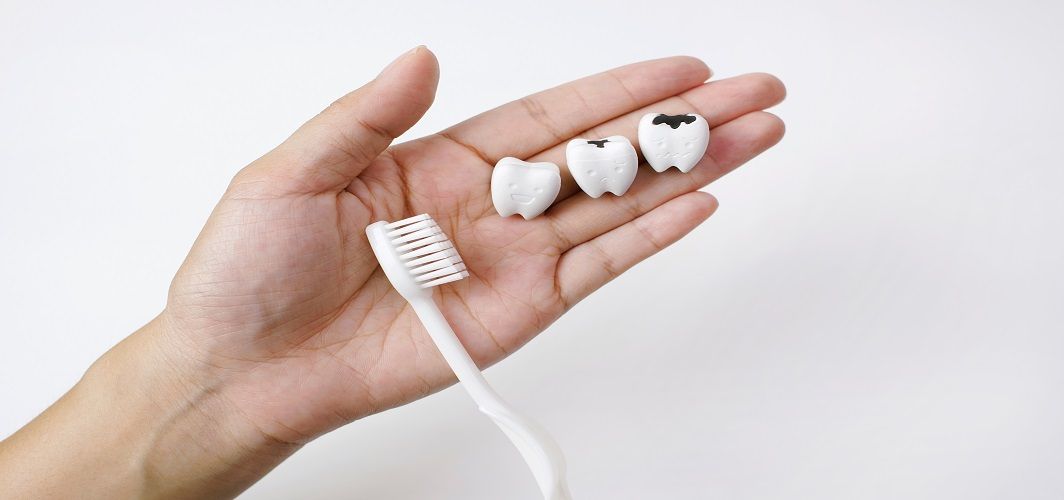Oral & Dental
Common Myths About Oral Health - Busted!
4 min read
By Dr Sonia Bhatt, Dental Surgeon - 26 November 2021, Updated on - 17 January 2023
Share this article
0
49 likes

Dentists often find themselves hearing statements like ‘removing teeth can affect eyesight’ or ‘dental cleaning causes loosening of teeth’, etc. These beliefs regarding dental health are incorrect and have no scientific reasoning. Let us take a look and bust some of the common myths associated with dental health.
1. Myth: Brush harder to get cleaner teeth.
Fact: Brushing vigorously does not make the teeth “cleaner”. Instead, it can result in abrasion, a condition characterized by the loss of the upper hard surface of the teeth. Such incorrect brushing techniques can result in severe sensitivity to hot and cold food. It is advisable to use a soft-bristled toothbrush to brush teeth in a circular motion while using minimal force.
2. Myth: Avoid brushing if you have bleeding gums.
Fact: Bleeding usually occurs due to the inflammation of gums, medically called gingivitis. Due to the deposition of plaque (colourless, sticky bacterial deposits on the tooth surface) and calculus (hard calcified plaque) around the teeth, gums start bleeding. Untreated gingivitis can result in periodontitis, an irreversible infection of the gums and underlying bones. Gingivitis can be treated and prevented by dental scaling and regular brushing.
3. Myth: Flossing is not important.
Fact: Just like brushing, flossing should be a part of regular oral care. Flossing removes the food particles stuck between two teeth without damaging the gums. This helps in preventing the accumulation of calculus on teeth and reduces the risk of developing inter-dental cavities (cavities between two teeth).
4. Myth: Dental cleaning includes the removal of the upper layer of teeth (tooth enamel).
Fact: Dental cleaning, medically called scaling, is a non-invasive procedure used to remove the accumulated plaque and calculus. It does not affect the enamel or any other oral tissue. No anaesthesia is required during scaling; it involves the use of an ultrasonic scaler that uses mechanical vibrations.
5. Myth: Dental cleaning leads to tooth sensitivity.
Fact: Prolonged deposition of calculus on teeth can cause gums to recede and expose the roots of the teeth. Unlike enamel, roots are sensitive to food, beverages and even air. On removing calculus from these areas, the patients experience temporary sensitivity in their teeth, which resolves in a day or two. The doctor may prescribe anti-sensitivity toothpastes containing potassium nitrate to help reduce sensitivity.
Recommended Read: 4 Foods to Avoid If You Have Sensitive Teeth
6. Myth: Scaling loosens the teeth.
Fact: Scaling does not loosen teeth. Mobile or loose teeth are a consequence of periodontitis, which damages gums and supporting bones. Periodontitis can be prevented by getting regular dental check-ups and scaling sessions every six months.
7. Myth: Eyesight is hampered when a tooth from the upper jaw is extracted.
Fact: As there is no relation between the upper jaw and the nerves of the eye, vision does not get affected by the extraction of a tooth.
Recommended Read: Dental Procedures: Frequently Asked Questions
8. Myth: An infant’s mouth need not be cleaned since they don't have teeth.
Fact: Cleaning an infant’s mouth is necessary to ensure that no residual breastmilk remains in the oral cavity after feeding sessions. The infant’s mouth can be cleaned using a damp gauze piece to prevent bacterial build-up.
9. Myth: Brushing is not necessary for toddlers until the age of 4 or 5 years.
Fact: Deciduous teeth, commonly known as milk teeth, start erupting from 6 months of age. It is advisable to start brushing milk teeth without toothpaste after bottle-feeding as the bacteria present in the oral cavity use the sugar present in the milk to grow and form acids, attacking the teeth. Avoiding brushing can lead to nursing bottle caries, a form of tooth decay in toddlers.
Recommended Read: Foods to Keep Your Teeth and Gums Healthy
Takeaway
Dental treatments have often been perceived as frightful and traumatic. Now that you have the facts to fight the myths that aggravate the fear associated with dental procedures, you can seek reliable dental advice that works for you!
Oral & Dental
Leave Comment
Recommended for you

Oral & Dental
Oral Hygiene Day 2022: Importance of oral hygiene and how to maintain it
Every year, 1st August is observed as Oral Hygiene Day in India. The day aims at spreading awareness about the importance of maintaining oral hygiene.

Oral & Dental
Is Severe Gum Bleeding A Sign Of Diabetes?
There is a two-way link between diabetes and oral health, particularly gum disease. People with diabetes are at a higher risk of developing oral health problems due to the impact of high blood sugar on the mouth. The article provides tips on how to maintain good oral health for overall diabetes management.

Oral & Dental
Tips to Prevent or Reverse Cavities
Dental caries, often known as cavities, are the early stages of dental decay that, if left untreated, can eventually lead to the formation of a hole in the tooth. They can be undone with simple restorative procedures like filling. Run down the blog to know how to prevent cavities.
Subscribe
Sign up for our free Health Library Daily Newsletter
Get doctor-approved health tips, news, and more.
Recommended for you

Oral & Dental
Oral Hygiene Day 2022: Importance of oral hygiene and how to maintain it
Every year, 1st August is observed as Oral Hygiene Day in India. The day aims at spreading awareness about the importance of maintaining oral hygiene.

Oral & Dental
Is Severe Gum Bleeding A Sign Of Diabetes?
There is a two-way link between diabetes and oral health, particularly gum disease. People with diabetes are at a higher risk of developing oral health problems due to the impact of high blood sugar on the mouth. The article provides tips on how to maintain good oral health for overall diabetes management.

Oral & Dental
Tips to Prevent or Reverse Cavities
Dental caries, often known as cavities, are the early stages of dental decay that, if left untreated, can eventually lead to the formation of a hole in the tooth. They can be undone with simple restorative procedures like filling. Run down the blog to know how to prevent cavities.